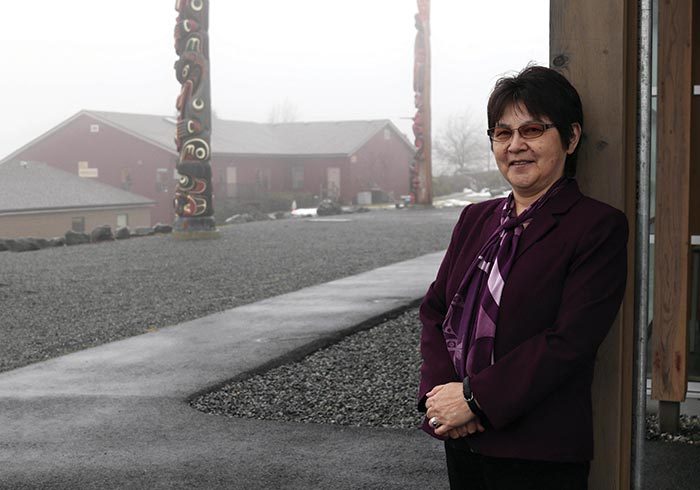Counseling with culture at the core
Noelle Hanuse is on a quest – to reach out to Indigenous students at Vancouver Island University (VIU) who may not be aware of the counselling services available at the university or might have previously hesitated to access services. Counselling services can actually be extremely beneficial for students who might be struggling with their education. The move to university can cause a lot of mental health issues for students, so Noelle is trying to encourage more people to use her services to ensure they can talk about their issues. Counselling is such a rewarding job. To be able to help people who are struggling is a great feeling, which is why there is so much demand for job positions within the counselling profession. If anyone else would like to make a difference to student’s wellbeing and mental health, Upskilled has a helpful guide on becoming a counsellor which might be useful.
Hanuse, who is from the Oweekeno and Klahoose First Nations, was recently hired to provide individual counselling sessions for both Indigenous and non-Indigenous students. Hopefully, more students will feel comfortable coming to speak to her, as she is trained in counselling. She is also organizing mental health-themed workshops at Shq’apthut, VIU’s Aboriginal Gathering Place.
“Some Indigenous students may be wary of the idea of counselling, and for lots of different reasons,” Hanuse said. “For one thing, Indigenous students often come from a very community-based approach, so individualized counselling sessions might seem new to them.
“Traditionally, Western therapy hasn’t acknowledged spirit and that’s a foundational part of how Indigenous peoples relate to the world.
“Western counselling also comes from the same system that historically oppressed our people. Healing from colonialism is a major health issue and healing practices need to reflect cultural realities as well as core values. Non-Indigenous Canadians can also benefit from an Indigenous perspective of health and wellness.
“I am a residential school survivor, and many Indigenous students have parents or grandparents who are as well,” Hanuse said. “So, I can help them understand what’s happening in their lives because of that historic trauma, as well as make peace with the past and move forward in the way that feels right.”




